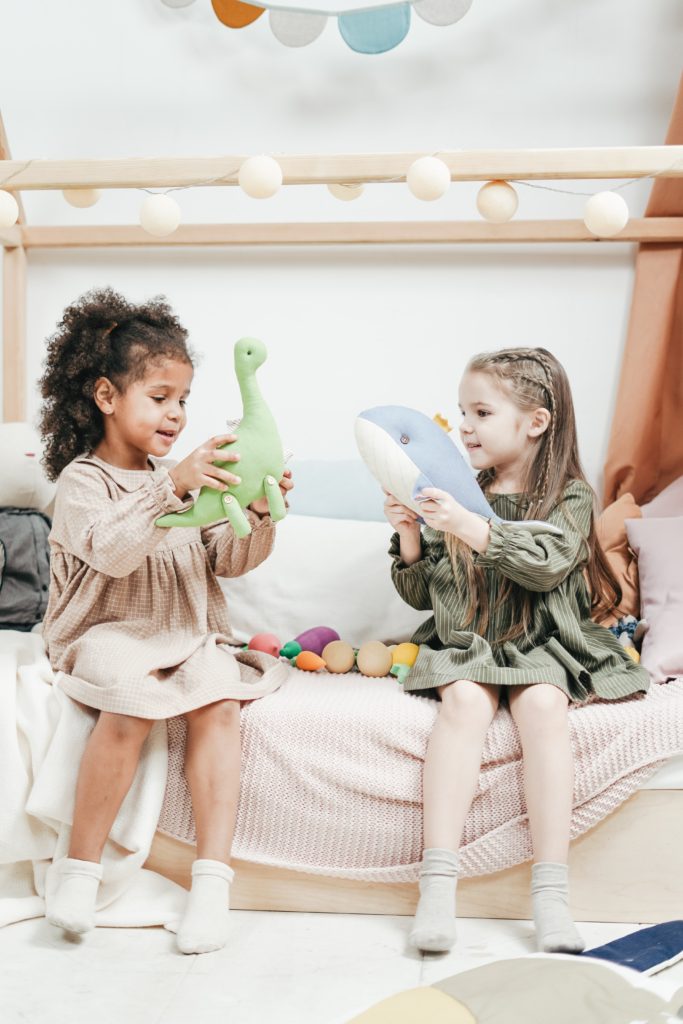
Are you considering homeschooling your child but worried that it will be bad for his or her social development? If so, you are not alone. Of all the reasons parents hesitate to homeschool their children, this is the one most frequently expressed. Perhaps this is because most of us parents were not homeschooled ourselves. We went to public or private school, and although our education might not have been amazing, we at least had friends and a “normal” social experience. What will happen if we pull our kids out of their “normal” social environment and begin teaching them at home? Will it make them weird? Will it set them up for social failure as adults?
Homeschooled and Traditionally-Schooled Kids Can Both Struggle Socially
If you want to homeschool your children but are worried that it will be bad for their social development, you should put your mind at ease. Yes, some homeschooled kids do struggle socially, but so do plenty of kids who attend traditional schools. Social challenges can arise for multiple reasons, and they can sometimes be made worse by peer pressure, bullying, and the sense of anonymity that often accompany a traditional school experience. In a 2020 article posted on Psychology Today, Dr. Kyle D. Pruett explained how socialization “is a skill that is taught from infancy on,” and that while “schooling can play a role,” it is “not the powerful or always positive one so often assumed.” Dr. Pruett aptly notes that as a society “we are habituated to educational venues that teach children in increasingly large numbers who are segregated with their age peers with the accompanying peer pressure and competitiveness, and we assume that this is the best way for them to acquire knowledge, develop academic skills, and become socialized.” 1 Yet many kids do not learn best this way, nor flourish socially any more than they would if homeschooled, and some suffer socially from the traditional school environment.
What the Research Says
As more and more families have turned to homeschooling in recent years, the traditional image of the socially awkward homeschooled kid has also faded, and now research is revealing it to be nothing more than a myth. Studies have consistently shown that homeschooling is not bad for social development. In an article for Widener Law Review entitled “Evidence for Homeschooling: Constitutional Analysis in Light of Social Science Research”, Tanya K. Dumas and her colleagues summarized how “a survey of empirical evidence shows that homeschooled students score as well or better than traditionally schooled children on widely used measures of social development.” 2 And although more research certainly needs to be done on this topic, the findings to date actually suggest that children benefit socially from the homeschool environment. A 2006 study conducted by Professor Richard G. Medlin (Stetson University) found that “homeschooled children’s social skills scores were consistently higher than those of public school students.” 3
Social Benefits of Homeschooling
One of the many positive aspects of the homeschool social environment is the opportunity for inter-age play and learning. According to many homeschool proponents, one negative social element of traditional schooling is the way children are divided by age. From kindergarten through most of high school, kids spend their days with only children their exact age. How does this prepare them for life in the real world? Have you ever had a job where everyone in your office was the exact same age as you? In contrast, homeschooled kids spend the majority of their time with children of various ages, whether through homeschool coops, extracurricular activities, or the family itself. Socialization and education alike can be very valuable when experienced among kids of different ages, as younger children learn to imitate the more mature behaviors of their older peers and older kids learn to better communicate with those around them – including younger kids who may not be at their same developmental level.

How to Socialize Your Homeschooled Child
If you are thinking of homeschooling your children but worried about its potential impact on their socialization, remember that there are many ways to provide a vibrant social experience for kids outside of the traditional school environment. Be sure to incorporate socialization into your child’s homeschool routine on a regular basis. Find one or more homeschool coops or playgroups that your child can participate in, or consider starting your own. Take advantage of extracurricular activities, including those sponsored by the local public school. Sports, scouting, music, and other activities can all provide excellent ways for your kids to regularly interact with other children, including their non-homeschooled peers. You may even want to consider dual enrollment, which allows your child to take some courses as the local public school while completing others at home under your instruction.
Forget About What’s “Normal”
Schooling – whether within or outside the home – is a process that impacts social, intellectual, and emotional development in complex ways. Too often, however, prospective homeschool parents hesitate to try homeschooling because they are afraid of depriving their child of a “normal” social experience. Yet there is no “normal” social experience in traditional schools because kids and schools alike vary widely when it comes to factors involved in social development. Whereas some kids will thrive socially in certain school environments, others will suffer. Yet parents thinking about homeschooling often overvalue this so-called “normal” social experience so much that they sacrifice the many wonderful opportunities for learning and growth homeschooling can offer their children. They end up settling for what might be a mediocre, frustrating educational experience in traditional schools so that their kids can at least be in a “normal” social environment – regardless of whether that environment is really the best thing for them.
Conclusion
Homeschooling gives you the opportunity to offer your child a truly tailored, inspiring, and self-motivated educational experience. Socialization can and should be a vibrant part of that education. As you think about embarking on a homeschool adventure in your family, try not to focus on the “normal” social experience your child will be missing out on. After all, “normal” is not even an accurate descriptor for school social environments, as they vary widely and affect different children in different ways (both positive and negative). Instead, have peace of mind knowing that research has consistently shown that homeschooling is not bad for social development; it even suggests that the homeschool environment may benefit kids socially. Celebrate the fact that, through homeschooling, you will be able to offer your child an array of exceptional experiences (including social experiences) not possible through traditional schooling.
1 Kyle D. Pruett, “The Last Word on Homeschooled Children and Their Social Skills,” Psychology Today (Feb. 20, 2020). Available at https://www.psychologytoday.com/ie/blog/once-upon-child/202002/the-last-word-homeschooled-children-and-their-social-skills?amp=
2 Tanya K. Dumas, Sean Gates, and Deborah R. Schwarzer, “Evidence for Homeschooling: Constitutional Analysis in Light of Social Science Research, Widener Law Review (Draft – December 2008), 21.
3 Richard G. Medlin, Ph.D., “Homeschooled Children’s Social Skills,” Home School Researcher (vol. 17, no. 1: 2006), 5.
